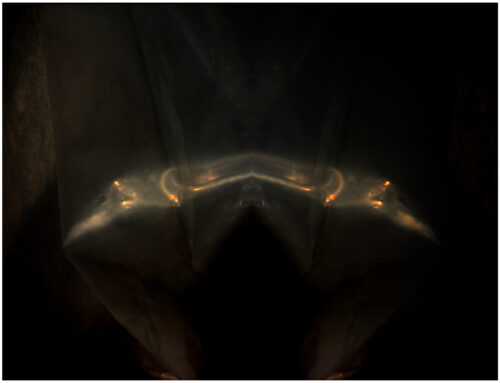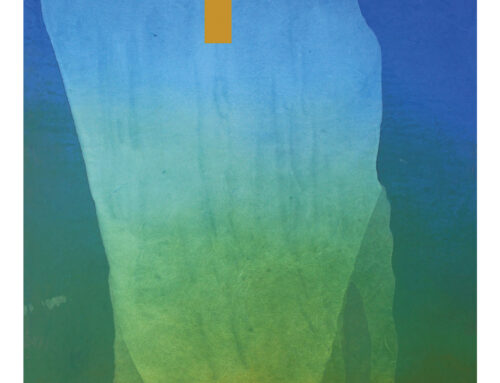Announcements:
1. Joe Kelly was the winner of the puzzle found in ‘Seed’. Here is the puzzle and here is the answer.
“The secret to creativity is knowing how to hide your sources.” Bartel Teisenni /Bartel Teisinni is an anagram for Albert Einstein. Consider the quote.
2. There are a number of early works by my hand from various periods and mediums being made available from a US collection. Anyone interested in seeing the PDF file of the works can write to Jim Jackson at: jsjax@msn.com
3. The paintings included in the current blog were created by students at the school for hearing impaired, Chiangmai, Thailand. These, along with others, are featured in my film,
Panom, A Story of Elephants and Humans
DON’T TRAIN ELEPHANTS, TRAIN OURSELVES / Changing the Way We Think About Our Actions
The absolute ugliness within our species seems to ever startle me in its brutality. In this beautiful, mostly Buddhist, country of Thailand, home today to a depleted population of less than 5000 Asian elephants – in 1900 there were over 300,000 – last week another beautiful creature was murdered for its tusks. It was a young seven-year old male. A juvenile. The two men who shot the elephant in the head were in the process of trying to remove the tusks when discovered by park rangers. They escaped but not the elephant. Even without the gruesome details, almost anyone might find this to be an unconscionable act of brutality, greed and ignorance. Oh yes, the cry is loud and wide. But what about the more pervasive acts of brutality, inflicted daily upon these beautiful creatures by tourists who seem to get some satisfaction out of watching elephants perform or simply imprisoned, as they are in zoos throughout the world?
In countries that are native habitats for the Asian elephant and in which historically they have been captured and forced into labor for humans, we find an ever-growing number of elephant camps. Once mainly used in the now defunct teak logging industry, captive elephants have been relegated to entertaining humans. In the more commercial camps, which remain quite popular, the elephants must carry two or three, often heavy, humans on their backs in the traditional wooden seat called a howda or made to perform in a circus-like environment doing things that normally humans do-playing soccer or musical instruments, dancing, etc.
It would be too easy to say the owners are greedy and the visitors ignorant. After all, some owners will say they are simply trying to make a living; elephants are expensive to house and feed. I’d also wager there are plenty of tourists who see nothing wrong with watching animals performing tricks. But should not humans be trained instead of wild animals?
In truth, the camp owners have no intrinsic interest in making elephants do things they would not naturally do. They are basically supplying a demand. In fact, if a sanctuary opened next to a typical elephant camp and charged virtually the same entrance fee, I would wager most tourists given the knowledge and choice would opt for experiencing the sanctuary. Just being in the presence of one of these magnificent animals is an extraordinary experience.
In my opinion sanctuaries should be exactly that: a place of refuge from as much human activity as possible, such as the one that Carol Buckley founded in Tennessee. Unfortunately, and particularly here in Thailand, these isn’t enough funding. The best compromise is to allow the captive elephants plenty of room to roam and do what they love to do: forage and swim and communicate with each other in ways we cannot imagine. Because they have been made captive, their natural spirit broken and then force-bonded to humans, they cannot be returned to the wild, even if enough wild existed. Sadly, for captive elephants, until they die, humans will remain well within elephants’ dreams and often their nightmares.
We do have a few well-run sanctuaries being set up in Thailand by those who care. They tend to be a bit more remote and the entrance fee more expensive. However, if more visitors supported the sanctuaries and not the typical elephant entertainment centers, a healthier situation would evolve.
If you’re reading this, of course, there’s a good chance we’re in the same choir. What we need is to increase the voices of the choir and the amplitude of the music. Collectively, we need to move the song out to those who simply haven’t heard it well enough or deep enough and who don’t realize that when we use wild animals for entertainment we abuse them, we diminish considerably their natural spirit and we leave a terrible stain of disregard upon the earth and ourselves.
Another sad example can be found in the terrible way we embrace zoos as if they were national treasures. In Seattle’s Woodland Park Zoo, there are three elephants who are confined most of each year in an enclosure that, for a human, would represent an extremely small, claustrophobic closet. It is deplorable! Even though a sanctuary in the southern part of the United States (the same one that Carol Buckley founded) has agreed to take them and house them in a facility with hundreds of acres, the Woodland Park Zoo remains steadfast in their refusal to release the elephants. A dedicated Seattle group, ‘Friends of Woodland Park Zoo Elephants’, continues to try and get the elephants released and into the sanctuary, but, so far, without success. Why is it so difficult? Here is the best answer.
For zoos, elephants are the big stars, bringing in big bucks, particularly baby elephants. The zoo continues to try and breed Chai, one of the zoo’s two Asian female elephants. In 1998, Chai was previously shipped to the Dickerson Zoo in Springfield, Montana, for breeding, the result of which was the celebrated birth of baby Hansa, an absolute marketing coup for the zoo. The baby regrettably died at the young age of six. It should also be noted and not forgotten that while at the Dickerson Zoo, Chai lost 1000 pounds from stress and was severely beaten by the handlers, a ruthless act of abuse for which Dickerson Zoo had to pay a hefty fine. It is also suspected that, while at the Dickerson Zoo, Chai was infected with a herpes virus that was passed on to baby Hansa.
In light of the monetary equation, it’s not surprising the Woodland Park Zoo would like another baby elephant, in spite of the fact the herpes virus might be passed on to the next baby. This hardly matters; the simple equation is the investment return is made in the first five years of the baby’s life.
Stir into the recipe the fact that, in 1971, the director of Woodland Park Zoo made an annual salary of about $18,000.00. The annual median wage for the average American at that time was about $10,000.00, slightly more than one-half the zoo director’s salary. Today the average wage for a US citizen is about $41,000.00, $1000.00 less than the average in 2005. The current director of Woodland Park Zoo hauls in almost $250,000.00 a year, more than five times what the average citizen makes. In this new world, CEOs are paid royally to insure the ‘bottom line’ stays at the top. If you don’t think that our cultural and educational institutions have been re-fashioned with a corporate mentality, then consider that the President of Ohio State University makes a whopping $1.5 million per year, at a time when educational costs for students keeps rising and the quality of education keeps falling. What matters most to the people that run things are the people that run things.
Yet even so, in the case of Woodland Park Zoo, which belongs to the community, it is up to the citizens to make a difference. Because, finally, it is the people who decide what the ‘bottom line’ is. If we would only choose to, we can make a difference. We can write to the newspaper. We can write to the zoo. And, most affectively, we can refuse to visit the zoo until the elephants have been released.
We should ask ourselves why we imprison humans for being bad and imprison other creatures for being good. Keeping any species in unnatural confinement because we cannot protect its habitat nor provide a sanctuary is not a valid argument. It is merely a rationale motivated by greed, an unwillingness to make changes or because we are simply too lazy. It is unlikely the two men who killed the young elephant will be caught. And it is likely more elephants will die. As long as people desire to wear the teeth of an endangered species, there will always be someone at hand to do the slaughter. And as long as money is made from the imprisonment of non-human creatures for our entertainment, the cages will remain full.
Panom, Galen








